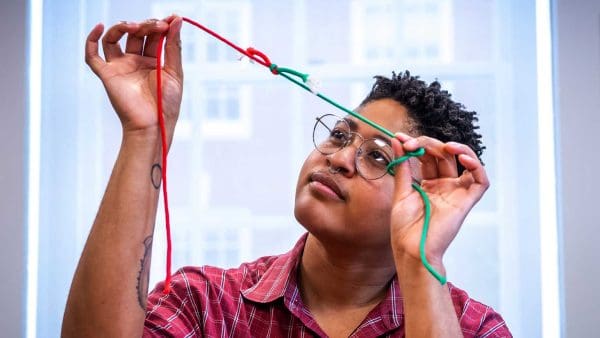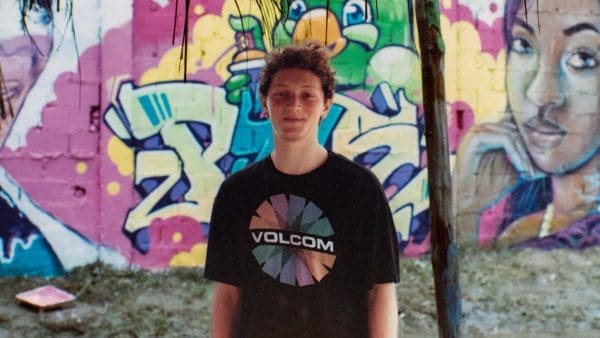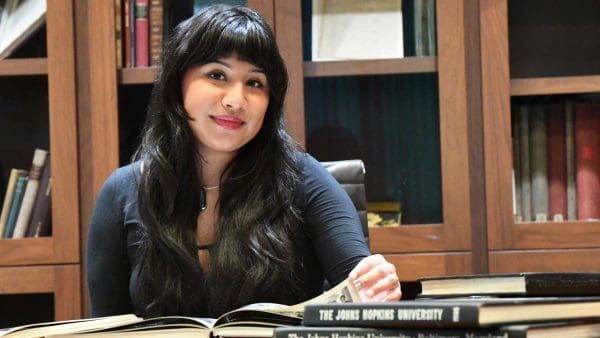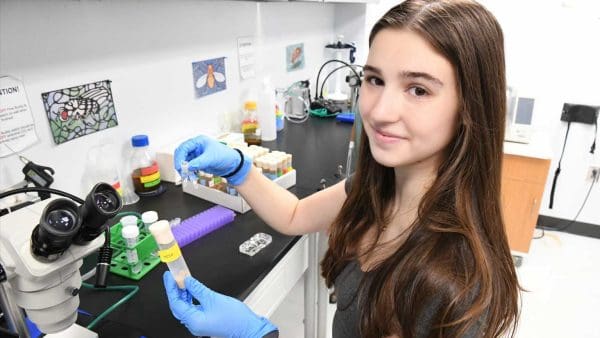Is there a Johns Hopkins student who hasn’t heard of Daniel Coit Gilman? The university’s notable first president has campus buildings and awards named for him. His image, cast in bronze, flanks the front entrance of Shriver Hall, and his role in bringing the German university model to America is a story that is a crucial part of the university’s lore. “At Hopkins,” says Kevin Chun ’12, who wrote his senior thesis on Gilman, “Gilman is a hero.”
Even before he had begun his research, Chun, a recipient of the A.J.R. Russell-Wood Undergraduate Research Award in history (one of the Dean’s Undergraduate Research Awards), knew that choosing to write a thesis on someone as well-known and well-documented as Gilman was going to be a challenge because it would be hard to find something new to say. But Chun was fascinated by the man after taking a course on the German research university, taught by his eventual thesis adviser, Rochelle Tobias, a professor in the Department of German and Romance Languages and Literatures, in his junior year and knew there had to be some aspect of Gilman that hadn’t been analyzed. His initial research, Chun says, was all about “trying to find a gap in the field that no one had written about.” After some searching, Chun found an unexplored topic: Gilman’s professional life as the president of the University of California, a position he held from 1872 to 1875, before his presidency at Johns Hopkins.

Kevin Chun ’12 uncovered little-known facts about Johns Hopkins’ first president.
The University of California job was a pivotal experience in the evolution of Gilman’s philosophy of higher education, explains Chun. At Berkeley, Gilman “wanted to try a comprehensive university model with a focus on undergraduate education as the center of the university,” says Chun. But Gilman faced stringent opposition from university faculty who championed practical programs like agriculture for a public institution. He left Berkeley filled with self-doubt about his abilities as an educational leader after becoming embroiled in acrimonious university politics.
“I realized that no one had really looked at this part of Gilman’s life before because it was considered a failure, and no one wanted to acknowledge that,” says Chun. Still, Chun contends, the setback at Berkeley laid the groundwork for the educational model Gilman created at Hopkins.
Chun used a variety of archived sources at Berkeley (a trip made possible by award funding) including biographies, speeches, newspaper articles, even congressional testimony to fill in the details of Gilman’s pre-Hopkins career, but he found some of the most compelling narratives in Gilman’s personal letters. In one, Chun recalls, one of Gilman’s mentees writes to Gilman noting his “horrendous experience at Berkeley.” In another, Gilman tells Andrew Dixon White, a friend and the president of Cornell University, that the debacle at Berkeley was “agonizing” and that he was apprehensive of further conflict in university administration. “I read these agonizing thoughts he shared with his friends,” says Chun, “and I realized how human and how fragile he was to show his raw emotion.”
Tobias, Chun’s adviser, points out that this kind of insight reflects Chun’s growth as a researcher. “Kevin already had a sharp, analytical mind when he began this project,” Tobias says. “Over the course of the thesis, however, he also became a gifted writer and a compelling storyteller. He put the pieces of the puzzle together in an original and convincing narrative.”
It’s that storytelling that led Chun to add history as part of a double major with public health. “I’ve always liked history, ever since I was little,” says Chun, who just entered medical school at the University of Maryland. “I liked how concrete and real it is. I like stories.”
Chun sees a connection with his thesis research and his future area of specialization, health policy. “Majoring in history really does help teach you how to interact with people and how to be a good leader,” says Chun. “And Daniel Coit Gilman was a great leader.”




